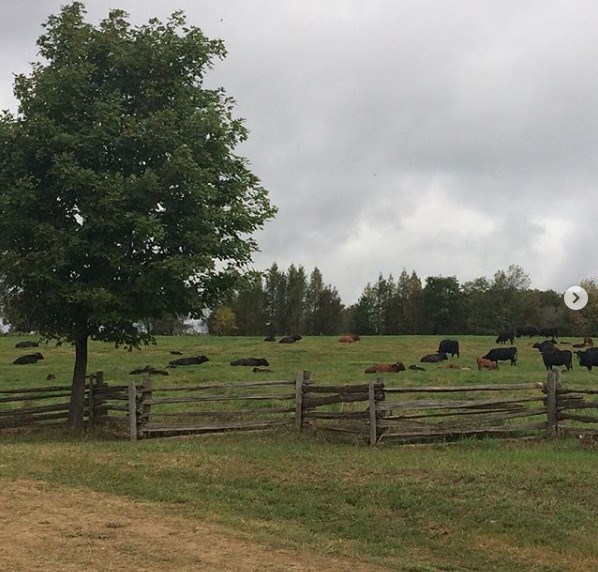As soon as the snow starts melting, construction is expected to get underway on Penokean Hills Farms’ new abattoir.
Until now, the farmer collective has been using an existing facility, located about an hour east of Sault Ste. Marie in Bruce Mines, but increasing demand for their high-quality meat has outgrown the abattoir’s capacity.
Nick Gordon, Penokean Hills’ director of sales and marketing, gave an update on the group’s progress during the Northern Ontario Ag Conference held in Sudbury in February.
He believes access to a modern, spacious abattoir will have a broader impact on the North, beyond just the benefits for Penokean Hills.
“Having this place is, I think, going to be really helpful in growing the agricultural community in Northern Ontario, giving people options to get into the program to supply beef and also pork,” he said.
In 2018, the existing facility processed 470 head of cattle. Their new facility will have the capacity to process 40 head a week, or more than 2,000 animals a year.
With a kill floor, cut floor, and meat processing area, the new abattoir will also have the ability to manufacture value-added products, such as pepperettes and jerkeys.
This added capacity will also allow Penokean Hills to expand into pork, something many of their clients have been asking for.
“That’s kind of a natural next step, if we can add pork into the mix,” Gordon said.
Want to read more stories about business in the North? Subscribe to our newsletter.
Establishing a sustainably run abattoir in the Algoma District is part of an ongoing process to create a value chain for the area, he noted.
The animals are raised by local farmers, who sell them to Penokean Hills at a premium.
They're then sent to a Penokean Hills-owned finishing farm in Thessalon, where they spend the last three to four months of their lives consuming an award-winning pea-and-barley diet that gives the meat a unique, earthy flavour.
Once slaughtered and processed, the beef is sent out to market, primarily at high-end restaurants in the Toronto area where chefs and consumers are placing more value on an animal’s origins.
At Michael’s on Simcoe, a 16-ounce Penokean Hills ribeye steak goes for $132, while an eight-ounce tenderloin runs $62.
Gaining access to that market has helped Penokean Hills become more sustainable, and offer premiums to the farmers they work with, Gordon said.
He believes Northern Ontario producers have a unique opportunity to fill this niche market.
“Chefs love to be able to buy local; they just don't have the access that they need to it,” Gordon said.
“They love to showcase what we have and they like to be a part of that story. Essentially, they become part of our community as we move forward together.”
Currently, Penokean Hills partners with 20 cattle farmers in the area, but they’re open to working with more in the future.
While they’re at capacity now, Gordon said the group believes there’s room for growth. There’s also opportunity for secondary employment in the industry.
Ten people are currently employed in cutting, and sales and marketing roles. But there’s an ongoing need for butchers, which Gordon said are in short supply in Northern Ontario and nationwide, largely because of a lack of available training programs.
Penokean Hills is willing to train the right people for the job, and provide employment afterward.
“We think that we can reach a level that we’ve really revitalized the Northern Ontario community with agriculture,” Gordon said.




